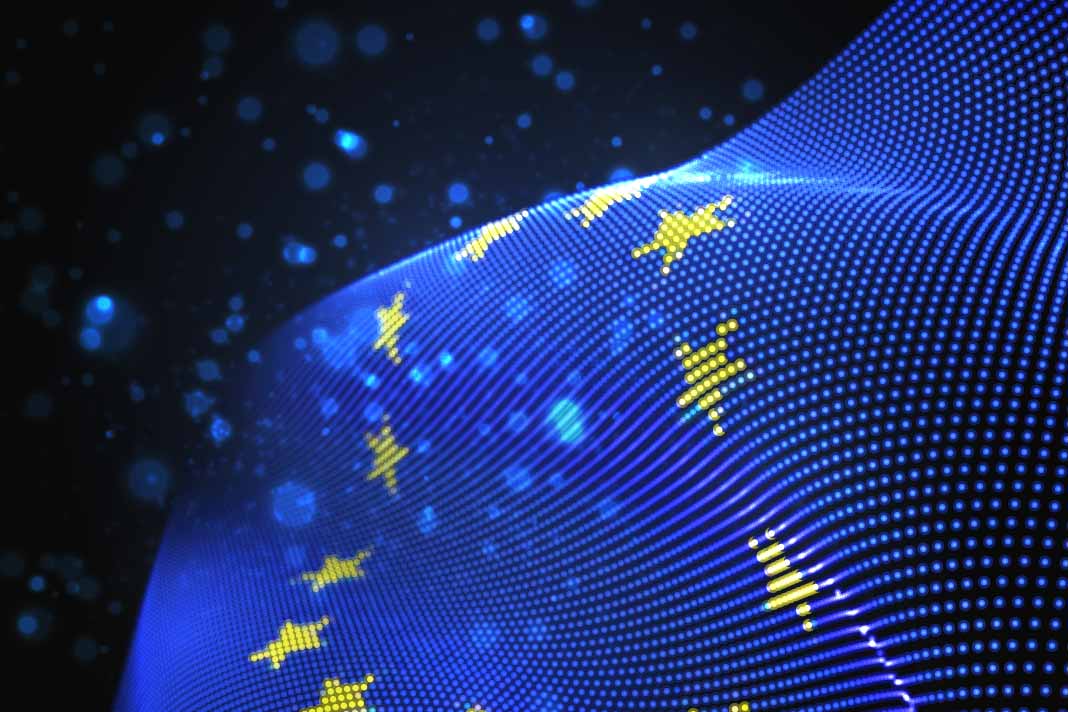Driven by political motivations and the upcoming EU elections, European regulators have unleashed a storm of enforcement actions and investigations related to the Digital Services Act (DSA) and Digital Markets Act (DMA).
The Digital Services Act (DSA), effective February 17, regulates the handling of illegal and harmful online content for all EU-operating platforms. The Digital Markets Act (DMA), with a compliance deadline of 6 March, targets digital competition by designating gatekeepers to ensure fair competition in key internet sectors.
Since the start of the year, but especially in recent weeks, the European Commission has unleashed a flurry of actions, zeroing in on big tech companies and implementing the two landmark tech laws.
Pornography sites were added to the “systemic risk” list under the DSA.
The Commission is in separate legal battles with Meta and TikTok over DSA fees.
Under the DSA, the Commission also launched a probe into TikTok, including possible breaches in child protection.
Apple saw a record fine for infringing the EU’s competition law.
The Commission investigated platforms like Google’s parent company Alphabet, Apple, and Meta for anti-competitive behavior and AliExpress. The executive body also issued guidelines concerning digital threats to elections.
Asked about the surge of measures in recent weeks, a Commission spokesperson outlined how enforcement actions and investigations proceed after a legislative act comes into force, adding that they are subject to judicial review and confirming that Commissioner for Internal Market Thierry Breton has been given enforcement powers for the DSA.
“Commissioner Breton can indeed give the political steer, but this is something that you can see in other areas, such as competition law,” the spokesperson said.
Political pressure
Julian Jaursch, project director at Stiftung Neue Verantwortung, a German think tank that works on digital technologies, politics, and society, said he could “imagine there’s a lot of political pressure from the top of the Commission, especially from Commissioner Thierry Breton” about the enforcement of the DSA.
Jaursch said Breton’s strong advocacy for the DSA is evident in his interactions with CEOs and public statements, which influence enforcement efforts at lower levels.
Margrethe Vestager, the Commission’s executive vice president, is also understood to be working hard to pass measures in the last months of her term. Vestager returned to the Commission in December after withdrawing her candidacy for the presidency of the European Investment Bank.
Jaursch said public statements by Commission officials during the early stages of DSA enforcement indicated their desire to become active quickly. “It’s a fine line the Commission has to walk here: The new rules do need to be enforced, and regulators can’t be complacent.”
“At the same time, acting too fast or overstretching resources and staff can backfire,” he said.
Also Read: We All Have a Tech Stack, But Are We Using It Right?
DSA and elections
The June European Parliament elections serve as a clear and definitive milestone for the DSA, prompting swift action from policymakers, said Lazar Radic, a senior scholar for competition policy at the International Center for Law & Economics and adjunct professor of law at IE University, told Euractiv.
He warned, however, that the DSA remains ambiguous in defining what constitutes misinformation.
“There is also the question of censorship and the threat of the DSA becoming a tool for not suppressing misinformation but perpetuating biases or misinformation,” he said.
Radic suggested that the Commission’s election guidelines are intended to clarify these definitions, particularly regarding misinformation ahead of the June elections.
Jaursch said that the election guidelines were announced quickly and remain skeptical about the DSA’s impact on this year’s elections. He brought up TikTok’s and Meta’s guidelines, which partially match the Commission’s.
The director at Stiftung Neue Verantwortung said he appreciated the Commission’s efforts but believed that the short notice—two months before the EU elections—may make it challenging to gauge the impact fully.
DMA and competition
In March, the Commission held a series of “workshops” to assess DMA compliance with the so-called gatekeepers: Apple, Alphabet, Facebook, and Instagram’s parent company Meta, Amazon, TikTok’s parent company ByteDance, and Microsoft.
The workshops were touted as an opportunity for the big tech firms to outline their DMA compliance measures.
The Commission announced investigations into Alphabet, Apple, and Meta’s non-compliance with the DMA following the first five workshops and the day before the last workshop.
“This was immediately after the workshop [which] was supposed to foster communication between the Commission and the gatekeepers. Others and I have been scratching our heads. What was the point of this?” said Radic.
He said the Commission had likely planned investigations long before the workshops. The Commission might have hoped the gatekeepers would address previously identified concerns during the workshops, but the probes may have been decided regardless of the workshop outcomes, the scholar said.
Radic added that “a disciplinary element to [the measures] might also exist. The Commission wants to signal that it’s serious.”
“The Commission keeps saying that competition law and DMA are completely different. But here we have yet another example of that continuum between the two,” he said. “The two are deployed at the same time.”
Final test
Radic said that the DMA was presented as a self-enforcing regulation, which he challenged: “How is it self-enforcing if the Commission is now, [in] the first month, launching these investigations?”
He also questioned how the Commission would measure the adequacy of changes made by gatekeepers to achieve the DMA’s goals of fairness and contestability.
According to Radic, the “final test” for the DMA’s success is “whether competitors’ market shares go up”. This might be what the act means by “fairness”, he added.



